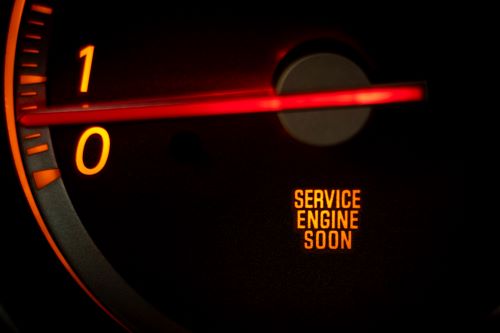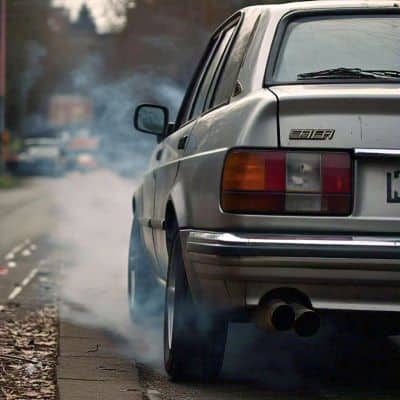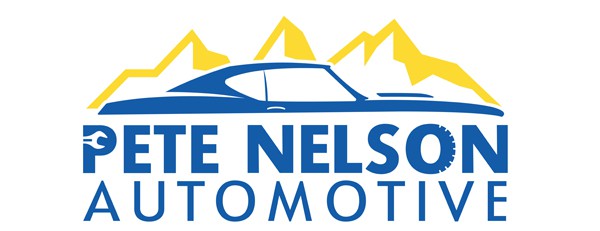
Every driver dreads the moment their engine falters, whether it’s unusual noises, warning lights, or decreased performance. Understanding engine repair is vital not just for maintaining your vehicle but for ensuring safe, efficient driving. Engines are complex machines that require a precise balance of components to function correctly, making it crucial to grasp key repair concepts and maintenance practices.
Engine repair typically involves addressing specific issues within the internal combustion engine, such as replacing worn spark plugs, fixing a leaky gasket, or tackling more complicated parts like timing belts. Regular maintenance like oil changes and checking the timing belt can prevent these minor issues from escalating into major, costly repairs or engine replacements. Routine inspections, such as checking coolant levels and air filters, are also vital for engine longevity.
Recognizing when your engine needs attention is key to avoiding serious damage. Signs like overheating, unusual noises, excessive oil consumption, or persistent warning lights can indicate problems that need immediate repair. Timely intervention can help prevent the need for more severe measures like engine rebuilds or full replacements, which are both more complex and expensive.
What sets engine repair apart from rebuilds or replacements is the focus on fixing individual components rather than overhauling the entire engine. However, if there’s widespread damage, a complete overhaul—replacing worn-out parts and restoring the engine to factory specifications—may be necessary.
In this article, we’ll guide you through the essentials of engine repair, covering everything from basic mechanics and common signs of trouble to practical maintenance tips. With the right knowledge, you can ensure your engine runs smoothly for years to come and avoid the pitfalls that lead to major repairs or replacements.
Understanding Engine Mechanics
The heart of your vehicle, the internal combustion engine, operates on the principle of igniting a mix of air and fuel in a confined space causing an explosion that drives mechanical motion. This system relies on a complex arrangement of engine components, each playing a pivotal role in the vehicle’s operation.
Common repairs within this mechanical marvel include the replacement of spark plugs, which ignite the fuel-air mixture inside the cylinder block, and timing belts or timing chains, which synchronize the movement of the engine valves with the pistons. Addressing such components promptly can help maintain the engine’s performance and fuel economy.
Internal issues may surface with a variety of symptoms, pushing the importance of regular check-ups to avoid turning simple repairs into costly replacements. From timing chains to interference engines – the need for quality engine repair services is paramount.
Distinctions Between Engine Services
When it comes to engine services, it is essential to understand the difference between repair, rebuild, and replacement. Engine repair often focuses on fixing specific issues without delving into the complete overhaul of the engine block. For example, a repair might involve replacing worn-out timing belts, faulty engine valves, or spark plugs.
However, an engine rebuild or replacement goes beyond repairs, addressing more severe symptoms and damages. An engine rebuild involves disassembling the engine, inspecting all parts, replacing worn components, and reassembling. In contrast, engine replacement means installing a completely new or refurbished engine. The extent of repairs or the need for a rebuild or replacement largely depends on regular engine maintenance and the early detection of engine issues.

Signs Your Engine Needs Attention
Recognizing signs of engine problems early can mean the difference between a simple repair and a complex rebuild. Warning signs to watch for include:
- Excessive exhaust smoke – depending on the color, this can signal different issues.
- Abnormal engine noises – a knocking, tapping, or clicking sound might indicate various engine issues, from valvetrain problems to electrical malfunctions.
- Illuminated Check Engine light – one of the most apparent signs that your engine needs to be diagnosed by a professional to prevent further damage.
- Engine stalling – whether it occurs at startup or during operation, stalling can indicate a range of engine troubles.
Keep an ear out for unusual noises and an eye on the dashboard for the Check Engine light, as these could be early indicators of engine distress.
Practical Tips for Car Engine Repair
For maintaining your vehicle’s heart—the engine—consider this practical advice:
- Act swiftly when you notice odd engine behaviors like unusual noise or performance dips as these could be symptoms of bigger issues.
- Regularly inspect critical components like the air filter and engine coolant levels to catch potential problems early.
- Keep an accurate record of maintenance schedules and engine services, ensuring a proactive approach to engine health.
- Don’t ignore early warning signs; quick check-ups can dodge those costly repairs or, worse, the need for an engine replacement.
These simple tips can help extend the life of your engine and ensure that it continues to provide reliable service.
Importance of Regular Engine Maintenance
Routine engine maintenance cannot be overstated in its role to forestall significant engine issues. Keeping up with oil changes, for instance, helps prevent carbon buildup in the engine. Too little or deteriorated oil can lead to reduced lubrication, resulting in friction, overheating, and even permanent engine damage.
Regular inspection of engine components not only keeps the engine running smoothly but also assures optimal fuel efficiency. Cooling system checks are equally crucial to prevent overheating, which can cause serious damage to the engine block and cylinder head.
Overlooking regular maintenance can swiftly escalate into extensive repairs. Adherence to a maintenance schedule is an investment in your vehicle’s longevity and performance.
Choosing Reliable Engine Repair Solutions
When faced with engine trouble, the cost of repairing specific components is often dwarfed by the price tag associated with full engine rebuilds or replacements. However, determining whether to repair or replace can be intricate and requires expert diagnosis.
Reliable engine repair solutions will depend on both the severity of the engine issue and the quality of the repair services. Workshops equipped with advanced diagnostics and skilled mechanics offer the best prognosis for engine longevity. Whether a simple repair can suffice or a complex rebuild is necessary, a reputable service provider will walk you through the options. Furthermore, be sure to select a service that insightfully prioritizes repairs that extend the life of your vehicle without unnecessary expense.
Regular engine maintenance can preclude the need for substantial repairs, keeping your vehicle running smoothly and efficiently for years to come. It’s essential to consider the history of engine services when choosing your repair solutions, ensuring professional quality and reliable performance for your peace of mind on the road.
Engine Repair vs. Engine Rebuild
The line between repairing and rebuilding an engine is defined by the extent of damage and wear within the engine’s internal components.
Engine Repair generally targets specific parts – such as gaskets, valves, pistons, and camshafts – which may be malfunctioning or degraded. If your vehicle’s Check Engine light turns on, this might be an indication of such problems. When these issues are minor, and the damage is isolated, repairs are the cost-effective choice. This piecemeal approach allows for the cost-effective replacement of only the specific components needed without overhauling the entire engine.
However, not all engine problems can be resolved with basic repairs. If a vehicle persistently exhibits signs of engine problems, such as failure to start, loss of power, excessive oil consumption, knocking noises, or smoke from the exhaust, these could indicate more serious internal damage.
Engine Rebuild steps in when significant damage or wear is discovered that cannot be addressed by mere repairs. This process typically involves the disassembly of the engine, cleaning and inspection of all components, and replacement or reconditioning of damaged parts. A complete engine overhaul is designed to restore the engine to as close to new condition as possible.
A rebuild might be advisable if multiple engine components are compromised, since continually repairing them individually could lead to more costly repairs down the line. It’s a comprehensive approach that, while more costly upfront, might extend the life of your vehicle significantly and improve overall performance and fuel economy.
Engine Replacement
When engines are beyond repair or rebuild due to extensive damage, or if they have accumulated too much wear and tear from prolonged use, an Engine Replacement becomes necessary. This procedure includes installing a completely new or professionally refurbished engine in place of the old one. Warning signs shouldn’t be ignored—as doing so can lead to such serious engine failures that only a complete replacement will suffice to get the vehicle back on the road.
The cost of engine replacements varies but generally falls between $2,500 to $5,000. While this upfront investment is significant, replacing an irreparably damaged engine can restore a vehicle’s performance levels and may be more cost-effective than enduring the continued need for repairs on an engine in very poor condition.
Regular engine maintenance is a proactive strategy for avoiding the need for extensive repairs or replacements. By identifying potential engine issues early through routine engine inspections that involve checking the engine coolant, air filter, and spark plugs, as well as performing oil changes and timing belt inspections, the chances of encountering unexpected and costly engine problems can be greatly reduced.
Unusual Noises
Your car should run smoothly with minimal noise, so any grinding, popping, clanking, or clunking sounds emerging from the engine compartment can spell trouble. These indicators of potential engine problems should not be ignored:
- Grinding Noises: Often related to starter motor issues.
- Popping Sounds: May be indicative of a misfire, potentially caused by faulty spark plugs or wires.
- Clanking/Clunking Noises: Could point to a loose component within the engine or the vehicle’s undercarriage.
- Knocking Under the Hood: A rhythmic pounding noise might reflect worn engine bearings—critical components that support moving parts in the engine.
Ignoring these noises can lead to more serious and costly repairs down the line, so taking prompt action is advised.
Warning Lights
When you see a warning light on the dashboard, it’s important to act swiftly:
- Check Engine Light: This light can illuminate for various reasons, from minor issues like a loose gas cap to major concerns such as a malfunctioning catalytic converter.
- Dashboard Warning Lights: These not only signal engine problems, but can also indicate braking system issues, electrical troubles, or even tire pressure inconsistencies. A blinking or solid red light, in particular, signals an urgent need for engine service.
- Electronic Sensors: Modern vehicles use a plethora of sensors that can trigger warning lights. Even if the car seems to run well, a Check Engine light can mean that sensitive emission controls or engine performance systems are compromised.
Addressing any illuminated warning lights promptly is critical to prevent further damage to your vehicle’s engine.
Decreased Performance
Declining engine performance is a serious concern that manifests through:
- Persistent Overheating: If your engine frequently runs hot, check your cooling system for leaks, malfunctioning fans, or a failing water pump.
- Excessive Oil Consumption: Consuming oil at a high rate can be a sign of worn seals or piston rings.
- Noises and Shaking: If your car shakes or emits clicking or grinding sounds, it could indicate engine components are failing and require immediate repairs.
- Trouble Starting: A vehicle that struggles to start may have battery issues, worn-out spark plugs, or other significant engine concerns.
Regular maintenance is key to preserving engine performance. If decreased performance is experienced, a professional should diagnose the problem to determine whether repairs or an engine rebuild/replacement are the most cost-effective solution.
Fluid Leaks
The presence of fluid leaks is a definite sign that your engine, or one of its supporting systems, is not functioning correctly:
- Oil Leaks: Can result in insufficient lubrication and cause engine parts to wear out faster.
- Coolant Leaks: May lead to overheating and serious engine damage.
- Transmission Fluid: A leak affecting the transmission can compromise the performance and safety of the vehicle.
Spotting any fluid leak is a cause for concern and warrants inspection by a professional technician. Ignoring fluid leaks can escalate into more severe problems, leading to hefty repairs or even engine replacement.
DIY vs. Professional Repairs
Determining whether to undertake car engine repairs yourself or seek professional help hinges on your skill level and the complexity of the task. A straightforward auto repair like changing the engine air filter or spark plugs might be manageable by the confident DIYer. However, more intricate engine services—a necessity when diagnosing and resolving issues with diesel engines or internal combustion engines—require a level of expertise and equipment not typically found in a home garage.
Pete Nelson Automotive uses state-of-the-art diagnostic technology and draws on extensive experience to pinpoint and address complex engine issues. These may go unnoticed with a DIY approach, potentially leading to future costly repairs. While cost is a valid consideration when deciding whether to take on repairs, remember: the false economy of a botched DIY job may end up being more expensive than professional service in the beginning.
For your safety and to ensure a quality engine overhaul or repair, it’s often advisable to rely on professional mechanics. They are well equipped to perform engine diagnostics and repairs, ensuring optimal vehicle performance and fuel economy. Routine maintenance conducted by professionals can catch minor issues before they escalate, thus saving you money in the long run.
Tools and Equipment Needed
Approaching engine maintenance and repair without the proper tools and diagnostic equipment is like trying to navigate without a map. Modern engine repair requires a range of specialized tools structured to deal with the intricacies of an engine block and its components. For instance, dealing with a faulty ignition coil or worn-out timing chain demands precision tools tailored to those parts.
Motor rebuilds and engine overhauls utilize advanced technology. Diagnostic devices are necessary to ensure the accuracy of repairs, which are crucial for both domestic and import vehicles. Standard services such as gasket or spark plug replacement may require torque wrenches, socket sets, screwdrivers, and pliers, among other tools.
Moreover, routine tasks like oil and filter changes are part of effective engine maintenance that prolongs engine life. For these, you’ll need basic hand tools, an oil filter wrench, and drainage pans. However, when it comes to comprehensive diagnostics to assess engine performance issues, relying on the expertise of professional mechanics at Pete Nelson Automotive equipped with advanced technology is essential for precise evaluations and repairs.
Common Repair Techniques
Engine repairs can be varied, ranging from simple part replacements to more extensive engine rebuilds. Fixing specific components like a defective ignition coil, a worn timing belt, or a damaged cylinder block can significantly boost the vehicle’s lifespan and is considered a cost-effective solution.
The technique of piecemeal engine repair means replacing only the components that are damaged or worn. This can be more economical in the short term, but a thorough assessment is necessary to make sure no underlying issues are missed. On the other hand, a complete engine rebuild encompasses disassembly of the engine, and replacement of all worn components, and reassembly, resulting in an engine that performs like new.
When the damage to an engine is significant and beyond the scope of individual component repairs, a complete engine replacement may be the most viable solution. While more expensive upfront, it can be more cost-effective over the long term, especially in cases of extensive wear or damage.
To summarize, staying on top of engine repairs and handling issues as they arise can help prevent the need for a more costly engine replacement. Regardless of the level of repair required, regular engine maintenance is essential. It is prudent to address any signs of engine problems, such as persistent overheating or unusual sounds, as early as possible to avoid more severe issues in the future.
Oil Changes
Oil is the lifeblood of the engine, acting as a lubricant to reduce friction and wear between moving parts. Regular oil changes, typically every 3,000 to 6,000 miles or every six to twelve months, are a fundamental aspect of engine maintenance. They protect engine components from overheating and can prevent the engine oil from becoming carbonized and forming sludge—a situation that can interfere with engine function and eventually cause irreversible damage.
Vehicle owners should frequently check their oil levels to ensure the engine is receiving optimal lubrication. Not just the quantity, but the quality of the oil is essential; using the appropriate type for your vehicle is paramount to maintaining engine health and functionality.
Timing Belt Replacements
The timing belt is an engine component that often goes unnoticed until it fails, yet it is instrumental in the operation of an internal combustion engine. Its primary role is to orchestrate the synchronized operation of the camshaft and crankshaft, enabling the engine valves to open and close at the correct times. Specifically, in interference engines, it prevents the piston from colliding with the valves.
Timing belts are distinguished by their rubber composition and interior teeth that mesh with the engine gears. Manufacturers typically provide specific mileage intervals for inspecting or replacing timing belts, emphasizing the importance of adhering to these recommendations to prevent unexpected engine failure.
Cooling System Maintenance
The cooling system plays a crucial role in maintaining an optimal operating temperature for the engine. Neglect of the cooling system can lead to overheating, which can cause permanent damage to critical engine components such as the cylinder block or head gasket. Checking the engine coolant levels should be a regular part of vehicle maintenance to detect any leaks and ensure that sufficient coolant is always present.
For safety and accuracy, it is best to check the coolant levels when the engine is cool. Routine maintenance of the cooling system is indispensable for the engine’s longevity and helps in preventing potential future costly repairs.
Spark Plug Replacements
Spark plugs are essential to an engine’s ignition system, igniting the fuel/air mixture within the combustion chamber. Following the manufacturer’s schedule for spark plug replacement is vital for maintaining engine performance. While platinum-tipped spark plugs may last up to 100,000 miles, other types might require more frequent replacement.
Symptoms of failing spark plugs include poor idling, misfiring, or starting trouble, and prompt attention to these signs can prevent further engine complications. Replacing spark plugs is a relatively straightforward maintenance task yet one that bears significant impact on an engine’s efficiency and operational integrity.
Regular engine maintenance, informed by these guidelines, is a proven strategy for avoiding severe engine issues and extending the life of the vehicle. By adhering to recommended service intervals and being attentive to the signs of engine problems, drivers can ensure their engines perform optimally for years to come.
Choosing Reliable Engine Repair Solutions
When your engine starts showing signs of trouble, it’s important to have a trustworthy automotive repair shop that can handle everything from minor repairs to major rebuilds. At Pete Nelson Automotive in Sun City, we specialize in providing top-notch engine repair and maintenance services. Whether you’re dealing with strange noises, overheating, or decreased performance, our experienced mechanics are here to help.
At Pete Nelson Automotive, we understand that engine problems can be stressful and expensive. That’s why we offer comprehensive diagnostics to accurately identify the issue, followed by honest, transparent repair options. Whether your car needs a minor fix, a full engine rebuild, or a replacement, we’ve got you covered.
Contact Pete Nelson Automotive today at 623-974-4723.


